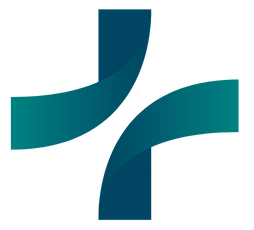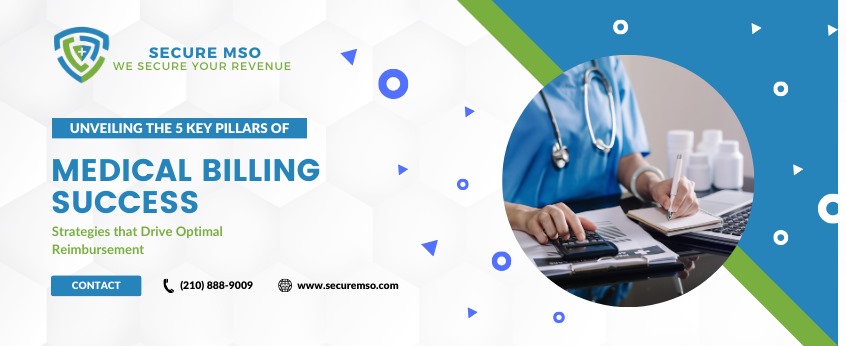- February 6, 2024
- Outsourcing, Medical Billing
Unveiling The 5 Key Pillars of Medical Billing Success: Strategies that Drive Optimal Reimbursement
Are you a healthcare provider struggling with medical billing? Are you looking for strategies to drive optimal reimbursement? Look no further! In this article, we will unveil the key pillars of medical billing success that will help you maximize your revenue and streamline your billing processes.
Effective medical billing is crucial for the financial health of a healthcare practice. However, it can be a complex and time-consuming process, requiring attention to detail and knowledge of ever-changing regulations. That’s where understanding the key pillars of success comes in.
From accurate coding and documentation to efficient claims management and denial management, we will explore the strategies that can significantly impact your reimbursement rates. By optimizing these areas, you can ensure that your practice receives the maximum reimbursement it is entitled to, while minimizing the risk of claim denials and delays.
Join us as we delve into the essential components of successful medical billing and discover practical tips and best practices to drive optimal reimbursement for your practice. Don’t miss out on this opportunity to improve your revenue and ensure financial success in the challenging healthcare landscape.
Table of Contents
ToggleImportance of Optimal Reimbursement in Medical Billing
Ensuring optimal reimbursement is vital for healthcare providers as it directly impacts the financial stability and viability of their practices. With the rising costs of healthcare and the complexities of the billing process, healthcare providers need to maximize their revenue to sustain and grow their practices.
Optimal reimbursement allows healthcare providers to cover their operational costs, invest in advanced technologies and equipment, and provide quality patient care. It enables practices to attract and retain top talent, expand services, and stay competitive in the ever-evolving healthcare industry.
However, achieving optimal reimbursement is not a simple task. It requires a comprehensive understanding of the key pillars that form the foundation of successful medical billing. By implementing effective strategies in these areas, healthcare providers can significantly increase their revenue and minimize the risk of claim denials and delays.
Key Pillars Of Medical Billing Success
Pillar 1: Accurate And Complete Documentation
Accurate and complete documentation is the cornerstone of successful medical billing. It ensures that all patient encounters, diagnoses, treatments, and services are properly recorded, supporting the medical necessity and appropriateness of the billed services.
To achieve accurate and complete documentation, healthcare providers should:
- Maintain detailed medical records: Document all relevant patient information, including medical history, physical examination findings, diagnostic tests, treatments, and follow-up plans. Use standardized templates and guidelines to ensure consistency and clarity.
- Capture all billable services: Ensure that all billable services, procedures, and supplies are accurately documented. This includes capturing all relevant codes, modifiers, and units of service.
- Provide supporting documentation: Include supporting documentation such as test results, reports, and progress notes to substantiate medical necessity and justify the billed services.
By ensuring accurate and complete documentation, healthcare providers can minimize the risk of claim denials and delays due to insufficient or inadequate documentation. It also facilitates proper coding and billing processes, leading to optimal reimbursement.
Pillar 2: Efficient Coding and Billing Processes
Efficient coding and billing processes are essential for maximizing reimbursement and minimizing claim denials. Proper coding ensures that the billed services are accurately represented, allowing payers to process claims promptly and reimburse healthcare providers accordingly.
To optimize coding and billing processes, healthcare providers should:
- Stay up-to-date with coding guidelines: Keep abreast of the latest coding guidelines, updates, and changes. Regularly train and educate coding and billing staff to ensure they are well-informed and proficient in their roles.
- Assign accurate codes: Assign the most appropriate codes based on the documented services, diagnoses, and procedures. Ensure that the codes accurately reflect the complexity and intensity of the services provided.
- Conduct regular audits: Perform regular internal audits to identify any coding errors, documentation gaps, or potential compliance issues. Address any identified issues promptly and implement corrective measures to improve coding accuracy and compliance.
By maintaining efficient coding and billing processes, healthcare providers can enhance revenue generation, reduce claim rejections, and minimize the risk of audits and penalties.
Pillar 3: Effective Claims Management
Effective claims management is crucial for streamlining the billing process and ensuring timely reimbursement. It involves submitting clean claims, tracking their progress, and resolving any issues or denials promptly.
To optimize claims management, healthcare providers should:
- Verify patient insurance information: Verify patient insurance eligibility and coverage details before providing services. Ensure that the insurance information is accurate and up-to-date.
- Submit clean claims: Submit claims electronically whenever possible, following the required format and guidelines. Double-check claims for errors or missing information before submission to minimize rejections.
- Track claim status: Regularly monitor the status of submitted claims to identify any delays or issues. Follow up with payers promptly to resolve any outstanding claims or denials.
By implementing effective claims management strategies, healthcare providers can expedite the reimbursement process, reduce claim denials, and improve cash flow.
Pillar 4: Timely And Accurate Follow-up On Denied Claims
Denied claims are a common challenge in medical billing, often resulting in delayed reimbursement and increased administrative burden. Timely and accurate follow-up on denied claims is essential to minimize revenue loss and ensure proper reimbursement.
To effectively manage denied claims, healthcare providers should:
- Analyze denial patterns: Identify common denial reasons and patterns to address underlying issues. This could include coding errors, missing documentation, or lack of medical necessity.
- Develop an appeals process: Establish a systematic appeals process to challenge denied claims when appropriate. Ensure that the appeals are supported by necessary documentation and comply with payer guidelines.
- Communicate with payers: Maintain open lines of communication with payers to resolve claim denials promptly. Understand their requirements and work collaboratively to address any issues or discrepancies.
By proactively addressing denied claims, healthcare providers can minimize revenue leakage, expedite reimbursement, and improve overall financial performance.
Pillar 5: Regular Performance Monitoring And Analysis
Regular performance monitoring and analysis are essential for identifying trends, evaluating key metrics, and driving continuous improvement in medical billing processes. By tracking and analyzing key performance indicators (KPIs), healthcare providers can uncover opportunities for optimization and enhance revenue generation.
To effectively monitor and analyze performance, healthcare providers should:
- Define relevant KPIs: Identify and define KPIs that align with the goals and objectives of the practice. This could include metrics such as clean claims rate, denial rate, average reimbursement per claim, and days in accounts receivable.
- Implement reporting and analytics tools: Utilize technology solutions and software to automate data collection, reporting, and analysis. This allows for real-time access to performance metrics and facilitates data-driven decision-making.
- Conduct regular performance reviews: Schedule regular reviews to analyze performance trends, identify areas for improvement, and implement necessary changes. Continuously monitor KPIs to ensure ongoing success and financial stability.
By regularly monitoring and analyzing performance metrics, healthcare providers can proactively identify inefficiencies, optimize processes, and drive sustainable financial success.
Strategies For Implementing The Key Pillars
Implementing the key pillars of medical billing success requires a strategic and systematic approach. Here are some strategies to help healthcare providers effectively implement these pillars:
- Invest in training and education: Provide ongoing training and education to coding and billing staff to ensure they have the necessary knowledge and skills to perform their roles effectively. This includes staying up-to-date with coding guidelines, regulatory changes, and industry best practices.
- Leverage technology solutions: Adopt advanced technology solutions, such as electronic health record (EHR) systems and practice management software, to automate and streamline billing processes. These tools can facilitate accurate documentation, efficient coding, and seamless claims management.
- Collaborate with revenue cycle management experts: Consider partnering with revenue cycle management experts who specialize in medical billing. These professionals can provide guidance, support, and expertise to optimize billing processes and drive optimal reimbursement.
- Conduct regular audits and reviews: Perform regular internal audits and reviews to identify areas for improvement and address any compliance or documentation issues. Implement corrective measures and monitor the impact of these changes on revenue generation and claim denials.
- Stay updated with industry changes: Stay informed about industry changes, regulatory updates, and payer requirements. This ensures compliance and allows healthcare providers to adapt their billing processes accordingly.
By implementing these strategies, healthcare providers can enhance their medical billing processes, maximize reimbursement, and ensure financial success in today’s challenging healthcare landscape.
Conclusion: Achieving Optimal Reimbursement in Medical Billing
Optimal reimbursement is a critical aspect of medical billing that directly impacts the financial health and sustainability of healthcare practices. By understanding and implementing the key pillars of medical billing success, healthcare providers can significantly increase their revenue, minimize claim denials, and streamline their billing processes.
Accurate and complete documentation, efficient coding and billing processes, effective claims management, timely follow-up on denied claims, and regular performance monitoring are the essential components of successful medical billing. By focusing on these pillars and implementing the strategies outlined in this article, healthcare providers can drive optimal reimbursement and ensure financial success in today’s complex healthcare landscape.
Don’t let medical billing challenges hinder the growth and profitability of your practice. Embrace the key pillars of success and take proactive steps to optimize your billing processes. With the right strategies and a commitment to excellence, you can maximize your revenue, minimize claim denials, and achieve financial success in the ever-evolving healthcare industry.
We Secure Your Revenue
Maximize Your Revenue Today!
Unlock Your Revenue Potential with Secure MSO's Expert Medical Billing Services Today! Maximize reimbursements, streamline your revenue cycle, and focus on patient care with our tailored solutions. Contact us now to schedule a free consultation and experience the difference!
Call Us!Book An Appointment
